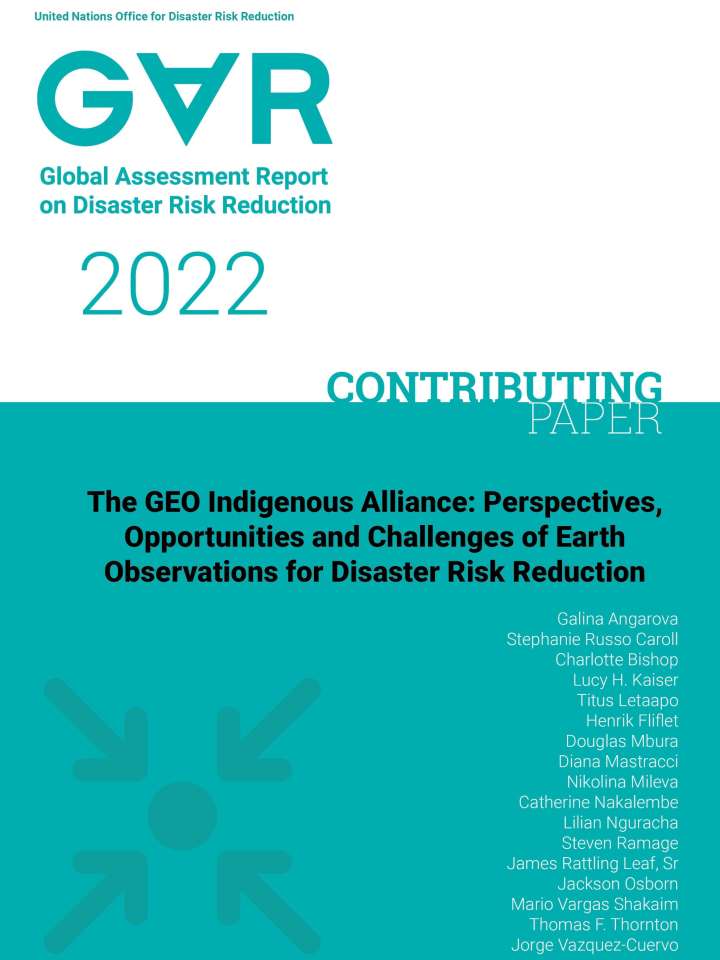The GEO Indigenous Alliance: Perspectives, opportunities and challenges of Earth Observations for disaster risk reduction
This contributing paper presents three different global examples, at different stages of development, of how Indigenous Peoples are co-creating data platforms and technological tools that weave together Indigenous and Western knowledge and scientific Earth observations (EO) for disaster risk reduction. By documenting these remarkable indigenous-led projects, the researchers aim to inspire greater appreciation of the use of Indigenous knowledge and strengthen the call for its promotion, protection, appreciation and application in disaster risk reduction. The case studies identified challenges and barriers for Indigenous communities in accessing and using EO data and tools. Seventeen recommendations emerge from the case studies that would assist disaster risk reduction (DRR) actors in further implementing the Sendai Framework for DRR 2015-2030.
The study concludes that EO data and tools, when co-designed with and for Indigenous Peoples, can promote a "people-centered" and Indigenous Knowledge driven approach to DRR. The case studies have highlighted important barriers and challenges that Indigenous communities face in accessing key DRR data. If the targets and goals of the Sendai Framework are to be achieved, these challenges must be urgently addressed. The implementation of Indigenous Knowledge in the Sendai Framework will require Indigenous Peoples to develop strong collaborations and partnerships with a variety of different stakeholders from the private sector, civil society and academia.
